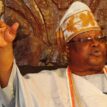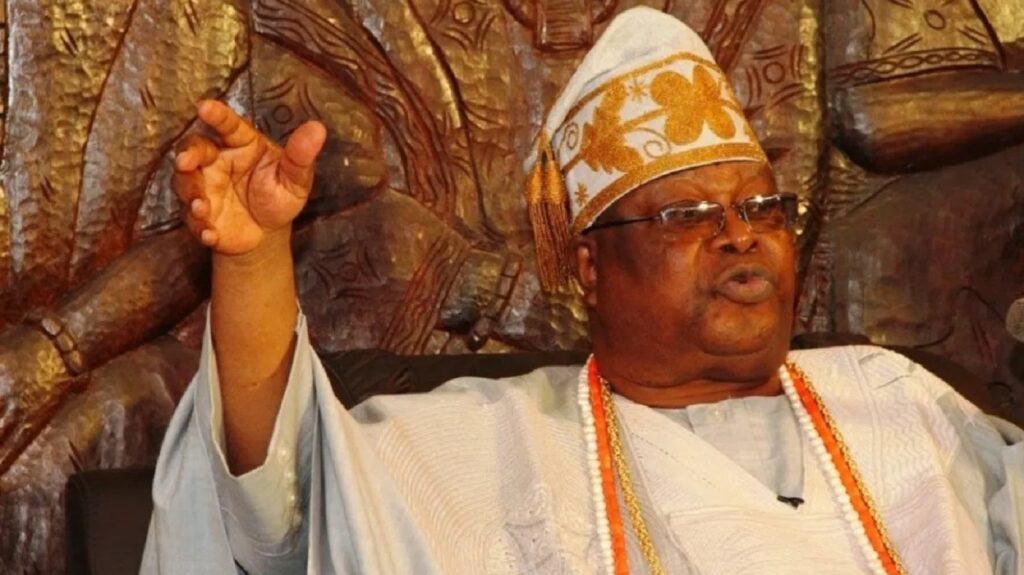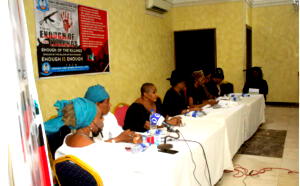Awujale Adetona By Fassy Adetokunboh Yusuf NEVER in the history of the circa one thousand years’ old Ijebu Kingdom did any king reign f...


By Fassy Adetokunboh Yusuf
NEVER in the history of the circa one thousand years’ old Ijebu Kingdom did any king reign for up to sixty years. However, Awujale Sikiru Kayode Adetona, Ogbagba II,
Paramount ruler of Ijebuland from the Anikinaiya Ruling House has broken every known record having ascended the throne on April 2, 1960, thus, incredibly clocking sixty years as the monarch of Ijebu nation- a no mean feat, and still marching on in the service of his people as the custodian of their culture and tradition.
There were fifty-seven Awujale (Awujale Ademolu Fesogbade ascended the throne twice!) before him starting from Awujale Olu-Iwa to his immediate predecessor on the throne, Awujale Daniel Adesanya, Gbelegbuwa II, who reigned from 1933 to 1959. He is no doubt the longest-reigning first-class monarch in Nigeria and has been a major actor in the socio-cultural and developmental history of Nigeria since the country’s independence.
With his six decades on the throne, Oba Adetona has seen the good, the bad and the ugly aspects of the Nigerian polity. No wonder, he bestrides the traditional institution like a colossus. A sagacious, courageous, charismatic, dependable and reliable traditional ruler, a statesman and an incorruptible monarch, Awujale Adetona is known to always damn every demagogue. Indeed, he is providentially always on the side of history and has weathered many storms that would have consumed lesser mortals.
ALSO READ: Ooni settles Ekiti traditional rulers, Govt tussle
In his seminal book, The Ijebu of Yorubaland (1850-1950): Politics, Economy, and Society, the late Emeritus Professor Emmanuel Ayankanmi Ayandele (1992), an eminent professor of history, gave ‘a remarkable account of an equally remarkable and uniquely adaptable people’. In a generous but factual assertion, the author in the Preface, inter alia, stated that ‘in any computation of human excellence and ability to make the best of any situation, the Ijebu stand very high in Africa in general and in Nigeria in particular. … Internally, in the bewildering power politics of Yorubaland … held their own in a spectacular fashion, the Ijebu kingdom being the only survivor of the large-scale cataclysmic eruptions that shattered the other Yoruba States in the nineteenth century’.
Ayandele further disclosed that perhaps the best ‘illustration of the genius of the Ijebu for survival and timely adaptability was their going the polar opposite by recognising and appropriating in the nick of time, the dynamics of social and economic process offered by westernism, their erstwhile bugbear which they had strenuously resisted to the point that the British maxims and seven pounders had to speak to them’. The Lagos Times of May 9, 1890, was right when it wrote that ‘Ijebu is about the only province now in what is commonly described as the Yoruba country that has not lost its original seat from the vicissitudes of inter-tribal warfare, which has sorely affected the land’.
Young Prince Sikiru Adetona who personifies the attributes of Ijebu that include fierce and sturdy independence, candour, objectivity, sincerity, entrepreneurial spirit, reliability, and resoluteness was born on Thursday, May 10, 1934. He variously attended Baptist School, Ereko, Ijebu Ode; Ogbere United Primary School; and Ansar-Ud-Deen School, Ijebu Ode between 1943 and 1950.
For his secondary education, he was at Olu-Iwa (now Adeola Odutola) College, Ijebu Ode from 1951 to 1956. Between 1957 and 1958 he took up an appointment with the then Audit Department of the Western Region, Ibadan. The charming prince resigned his appointment in 1958, to pursue further studies in Accountancy in the United Kingdom. He left Nigeria by sea from Port Harcourt in late December 1958.
By a letter, dated January 4, 1960, referenced CB. 4 1/333, the Permanent Secretary in the defunct Western Region Ministry of Local Government conveyed to the Local Government Adviser in Ijebu Ode, approval of the Western Region Governor-in-Council, the appointment of Prince Sikiru Kayode Adetona as the Awujale of Ijebuland with effect from that date (January 4, 1960).
It was indeed, a new dawn in the annals of Ijebu people. The king-elect thereafter proceeded to undergo the traditional seclusion at the Odo for three months.
On Tuesday, April 5, 1960, newly crowned Oba Adetona, took his seat as a member of the defunct Western Region House of Chiefs, after a formal introduction. And, as if confirming the aphorism that a golden fish had no hiding place, the new Awujale was appointed by the Western Region Government as a Minister and Member of the Region’s Executive Council.
This position he occupied until the outbreak of the Western Region’s political crisis in 1962. With the declaration of a State of Emergency in the Western Region by the then Federal Government led by the late Sir Abubakar Tafawa Balewa, the late Dr Majekodunmi who was appointed the Administrator of the region found the services of the young Awujale indispensable. He was thus made a Commissioner during the Emergency period.
Since 1960, Oba Adetona has succeeded in raising the status and reckoning of his Ijebu people. He is known and perceived as one of the country’s greatest monarchs, dead or alive. A philosopher and social scientist, his fame and popularity extend beyond the shores of Nigeria.
Awujale Adetona is loyally and devotedly committed to the Nigerian State having built bridges across Rivers Niger and Benue. He admonishes his people to be thoroughbred wherever they find themselves. No wonder that the Ijebu people have not only comported themselves wherever they are but it is on record that no inter or intra ethnic clash has been recorded in Ijebuland since he ascended the throne (in 1960).
He was in the forefront of finding a national solution to the political logjam of 1993 to 1999. Oba Adetona consulted widely and hosted several fora. He was never a sell-out. He brokered peace and concord in 1998 and 1999, and the current major actors in the nation’s main political parties will readily attest to this disclosure. The incorruptibility of Oba Adetona is unsurpassable as spoils of office cannot corrupt the monarch.
He is just, transparent and equitable. Oba Adetona loathes indecency and eschews corruption like the plague. He has been known to chastise corrupt leaders and quite often to publicly denounce them. Woe betides any Ijebu person who gets his hands soiled as such an Ijebu has no home to return to. His long and enviable reign has not made Oba Adetona decay nor decompose.
During the Abacha era, he was amongst the few leaders that stood to be counted on the side of history. Time has indeed vindicated him. Oba Adetona, to paraphrase Josiah Gilbert Holland (1819 to 1881), is one leader “whom the lust of office does not kill.’’ A leader “whom the spoils of office cannot buy.” A monarch who “possesses opinions and a will.” A king “who has honour, who will not lie”. A legend that has always “stood before a demagogue and damned his treacherous flatteries without winking.”
He is a monarch among monarchs that successive administrations in Ogun State and indeed, Nigeria hold in high esteem as a manifestation of his incorruptibility, transparency, objectivity and sagacity.
He has immeasurably succeeded in bringing about religious harmony among his people to the extent that religion does not dichotomise the Ijebu as Christians live in harmony with Muslims. The traditionalists are equally not isolated. The common saying in Ijebu is that “religion cannot divide us”. The Holy Quran confirms this, to wit: “to you, your religion, and to me, my religion”.
Albeit Oba Adetona, is the President of the United Muslim Council (an umbrella Islamic organisation for Muslims), he attends Christian functions and he is quite versed in the Holy Bible. The Ijebu Christian Community holds the New Year Prayer Session in the Awujale Palace. Many of his high-ranking Otunba and Chiefs are Christians. The Palace is an admixture of Christians, Muslims and traditionalists.
Oba Adetona’s purity and righteous deeds are accounting for his success in this world and would surely account for his securing al-Janah (paradise) in the Hereafter. Given his spirituality, one is left in no doubt that Oba Adetona will reign for many more years as God guarantees longevity and good health for leaders who fear Him and thread His path.
This spectacular monarch has used his sagacity and creative ingenuity to bring the Ijebu traditional institution in tandem with civilisation. The old and fetish practices have been jettisoned in Ijebuland, thus making the institution to be attractive to successful technocrats, professionals and business moguls of royal lineage.
As a monarch, Oba Adetona has personal warmth and integrity. He has a positive attitude and high energy level. The Ijebu monarch has an enormous sense of humour.
The revival of the Ijebu Age Grade system (known as Regberegbe, in local parlance), the building of the gigantic palace and the Ojude Oba pavilion, the novel and unique Ijebu Development Board on Poverty Reduction, the unsurpassable Awujale Adetona Professorial Chair in Good Governance at Olabisi Onabanjo University, the granting of coronets to many communities in Ijebuland are some of the everlasting legacies of Oba Adetona.
Albeit, one issue agitating the mind of this quintessential monarch is the desirability of creating an Ijebu State out of the present Ogun State, his subjects are unanimous with him in his quest. Indeed, for justice, fair play, and equity to reign in the land, the Ijebu deserve a State of theirs. Surely, at God’s own appointed time, Ijebuland would become a State.
To preserve history, Oba Adetona published on the occasion of his fiftieth year as Awujale and Paramount Ruler of Ijebuland and to coincide with his seventy-six birthday his autobiography with the title ‘Awujale: The autobiography of Alaiyeluwa Oba S. K. Adetona, Ogbagba II.’ The seventeen-chapter book with seven appendices tells it all. It is a masterpiece and a must-read for anybody interested in the history of ‘the Ijebu of Yoruba nation’ and monarchy in Nigeria.
On behalf of the good people and friends of Ijebu nation, this is a unique opportunity to salute the living legend, the great and amiable monarch as he strikes diamond on the throne of his forefathers and prepares to mark his eighty-sixth birthday on May 10, 2020. May his reign continue to be peaceful, progressive, and beneficial to Ijebuland and indeed, our dear nation.
*Dr. Fassy Yusuf, former Ogun State Commissioner for Information and Culture, a Lawyer, and Development & Communication expert is the Bobagbimo of Ijebu (E-mail: drcfassyaoyusuf@gmail.com and Mobile: 08033154488)
The post Awujale Adetona clocks 60 years on the throne appeared first on Vanguard News.

No comments